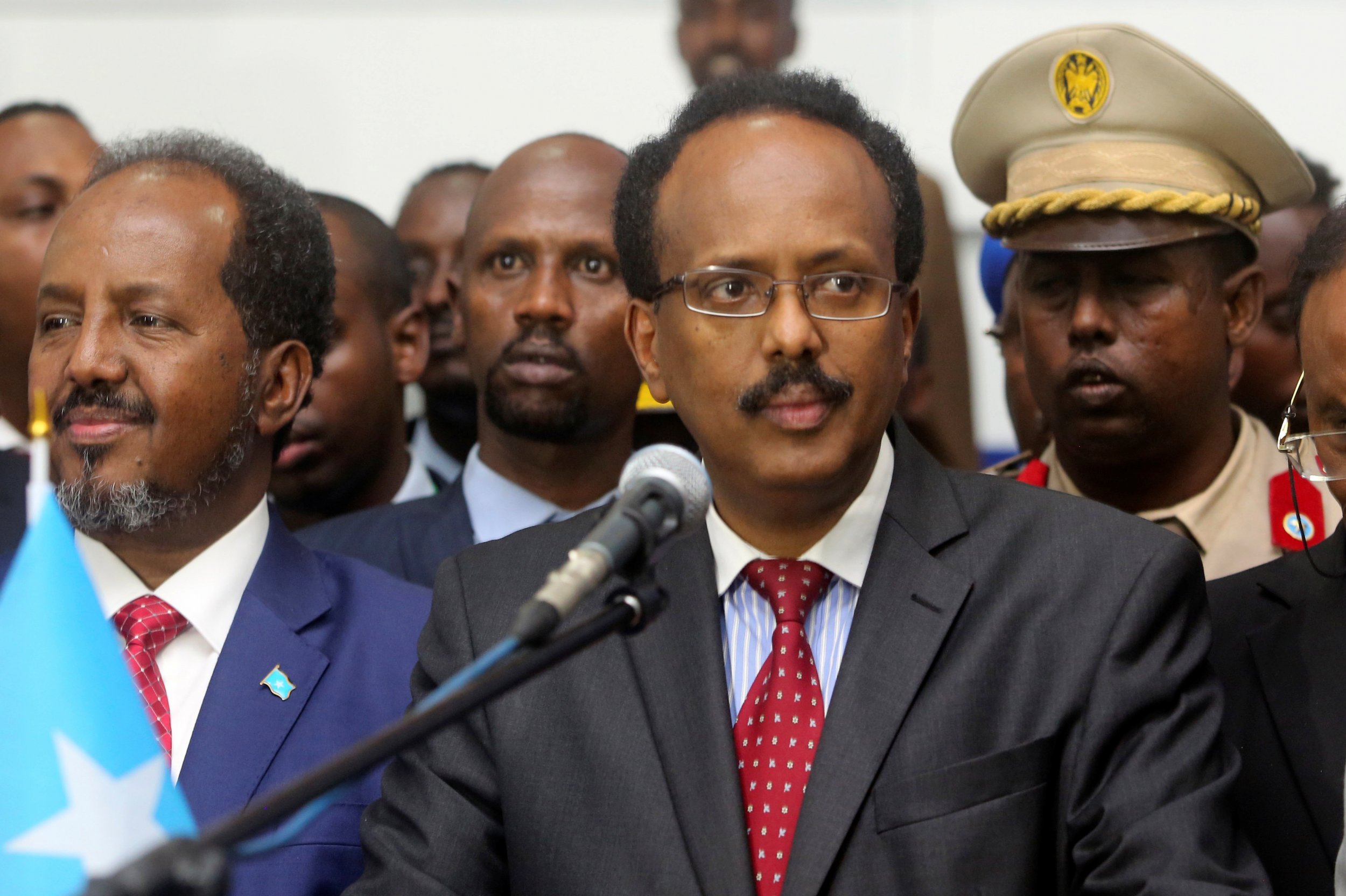
Somalia has a new president: Mohamed Abdullahi Mohamed, who is better known by his nickname, meaning "Cheese."
Lawmakers elected Mohamed, 54, to be the country's new leader in a unique election held within the confines of Mogadishu's international airport.
Known as Farmajo, a play on the Italian word formaggio for cheese, he reportedly owes the moniker to a penchant his father acquired for cheese while Somalia was under Italian colonial rule.
Farmajo was an outside bet for most observers. Despite having had some experience in the Somali foreign ministry in the 1980s—before the state collapsed into civil war and clan conflict in 1991—and serving as prime minister for just over seven months between November 2010 and June 2011, Farmajo has spent most of the previous few decades in the United States, living and working in the city of Buffalo in New York state.
Most expected the incumbent Hassan Sheikh Mohamud, his predecessor, Sharif Sheikh Ahmed, or the current prime minister, Omar Abdirashid Ali Sharmarke, to become the next president.
The election was not based on the one-person, one-vote system of Western democracies: Instead, 135 clan elders had chosen an electorate of 14,000, which in turn elected around 330 MPs and senators, then the latter group voted on who should become president. The process was allegedly marred by corruption, with some $20 million illicitly changing hands through vote buying and selling and other forms of bribery, according to the New York Times.
Sharmarke and Sharif dropped out of the presidential election in the first and second rounds of voting respectively, leaving Mohamud to face off against Farmajo. After the outsider took 184 votes to the incumbent's 97 in the second round, Mohamud conceded defeat in the third round, leaving Farmajo as the victor.
Born in the southern Somali region of Gedo, Farmajo spent his early life in Mogadishu. Before the election, he had been living in the United States since 1985.
The president joined the Somali foreign ministry in 1982, according to a New York Times profile, and was transferred to Washington in 1985, where he sought asylum after criticizing the government in Mogadishu. He built his life in Buffalo and most recently worked for the New York State Transportation Department, ensuring that the department complied with equal opportunities policies and avoided discrimination.
A dual U.S.-Somali national, he fell into his role as Somali prime minister after an unplanned meeting with Sharif in 2010. Despite his short term in office, Farmajo gained widespread public support for several innovations, including halving the size of the cabinet and seeking to increase transparency in government. After he was forced to resign under the terms of a deal which extended the mandate of the transitional government at the time, protests broke out across the country, including in Mogadishu, where the interior minister was killed by a suicide bombing at his home.
Farmajo's return to Somali politics was welcomed by many on the streets of Mogadishu after his election victory was announced. "He is going to be the president of the entire country," Ismael Gure, a Mogadishu businessman, told USA Today. The president himself hailed the win as "a victory for Somalia and the Somalis."
But with a raft of challenges facing the new leader—including a raging insurgency perpetrated by al-Shabab, a devastating drought and embedded corruption—the man with the cheesy nickname certainly has a lot on his plate.
Uncommon Knowledge
Newsweek is committed to challenging conventional wisdom and finding connections in the search for common ground.
Newsweek is committed to challenging conventional wisdom and finding connections in the search for common ground.
About the writer
Conor is a staff writer for Newsweek covering Africa, with a focus on Nigeria, security and conflict.
To read how Newsweek uses AI as a newsroom tool, Click here.








